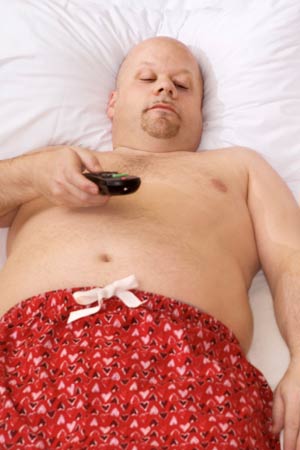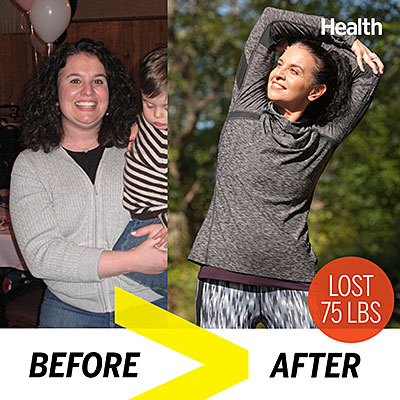Diet Preparation Part III Arranging Your Day For A Better Nights Sleep
In Part III of this series entitled "Diet Preparation: the Impact of Sleep and Stress," I want to give you some concrete ideas and tips on how to improve your sleep habits by establishing better daytime patterns that will influence your sleep at night. Again, this greatly impacts the effectiveness of any weight loss program you may start. If the body isn't getting appropriate rest and a chance to rebuild itself, then achieving your weight loss goals becomes much more difficult if not impossible.
Now that you understand the importance of sleep and that it directly impacts your chances of healthy weight loss, what can you do to make sure you are getting a good night's sleep? Again, there may be very little you can change about a particular situation that is raising your stress levels.
But you can always control how you react to those situations. The first thing you can do right now is decide that you will get a good night's sleep and you will not be robbed by night's spent turning and tossing due to some situation you have to face. Then here's how you can be proactive in getting a good night's sleep. Remember, getting a good night's sleep doubles your chances of losing the weight and keeping it off. Let's begin with some tips to establishing better daytime habits which will effect your sleep at night.
TIPS FOR BETTER DAYTIME HABITS
* Do not nap during the day. If you are having trouble sleeping at night, try not to nap during the day because you will throw off your body clock and make it even more difficult to sleep at night. If you are feeling especially tired, and feel as if you absolutely must nap, be sure to sleep for less than 30 minutes, early in the day.
* Limit caffeine and alcohol. Avoid drinking caffeinated or alcoholic beverages for several hours before bedtime. Although alcohol may initially act as a sedative, it can interrupt normal sleep patterns.
* Don't smoke. Nicotine is a stimulant and can make it difficult to fall asleep and stay asleep.
* Avoid over-the-counter and prescription drugs as much as possible, especially closer to bedtime. Many over-the-counter and prescription drugs disrupt sleep.
* Expose yourself to bright light/sunlight soon after awakening. This will help to regulate your body's natural biological clock. Likewise, try to keep your bedroom dark while you are sleeping so that the light will not interfere with your rest.
* Exercise early in the day. Twenty to thirty minutes of exercise every day can help you sleep, but be sure to exercise in the morning or afternoon. Exercise stimulates the body and aerobic activity before bedtime may make falling asleep more difficult.
* Check your iron level. Iron deficient women tend to have more problems sleeping. So if your blood is iron poor, a supplement might help your health and your ability to sleep.
As always, consult your physician before making any significant changes that could effect your health. Look for Part IV in this series in which I will give you some great tips on how to have a better sleep environment.
Check this out for more information on Diet Preparation!
Cheers to your weight loss success!
-
Dangers of Using Diuretics for Weight Loss
Diuretics, also referred to as water pills, are used to drain fluids f
-
Plus-Size Woman Wants To Change Perceptions
What really is the difference between “thick”
-
How To Bounce Back From A Binge Eating Episode: 5 Women Share Their Stories
Unfortunately, binge eat
-
Curried Chicken Over Spinach
This dish is rich tasting without a lot of work. The curry coconut
-
Fat Loss And Motivation: Getting Started
Losing weight is not an easy thing to do. It is a daunting task, somet
-
Weight Loss Pills Should You Use Them?
If you have, you may be interested in seeking help through the use of
- DON'T MISS
- 2 Simple Solutions for Your Question ?How Many Calories Should I Eat to Lose Weight?
- Higher Metabolism Equals Faster Weight Loss
- Hepatitis liver inflammation reduced by specific immune cells
- Gradual Weight Management Plan
- Hoodia Liquid Extract Vs Hoodia PillTablet Which One Is The Best
- How To Know If Youre Overweight
- Slim Patch For Swift Weight Loss – Reduce Excess Weight And Get A Thin Body Quickly
- When You Want To Lose Weight, These Tips Are The Ones You’ll Want To Try
- Tips To Help You In Burning Fat Fast
- How Can Lifestyle Changes Cause Weight Loss




